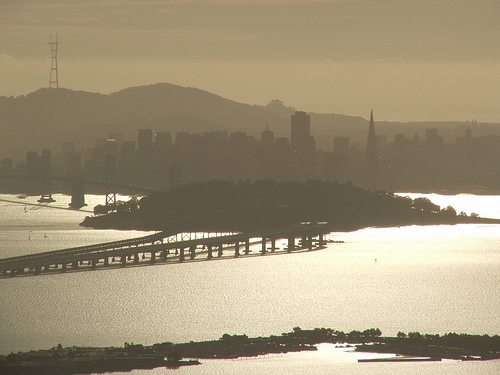 Bay Bridge and San Francisco / Flickr
Bay Bridge and San Francisco / Flickr
The magnitude 7.0 earthquake that occurred a couple weeks ago near Christchurch, New Zealand is yet another reminder for those of us living in the Bay Area about the inevitable seismic danger we face. While many details of the New Zealand earthquake are different than what we face in the Bay Area, there are a few aspects that are comparable.
The fault that ruptured on the South Island of New Zealand was dominated by strike-slip motion, which is similar to the San Andreas, Hayward, and related faults in the Bay Area*. And, unlike the devastating earthquake that struck Haiti in January, the state of building construction in the Bay Area and Christchurch is, in general, much better.
But there are a lot of older structures in the Bay Area that could be quite dangerous in a powerful earthquake. Individuals need to be prepared. A few months ago, my wife and I declared a weekend ahead of time to be "seismic hazard preparedness weekend" (I even wrote that on the calendar). The USGS has incredible resources when it comes to Bay Area earthquake awareness, education, and preparedness. We downloaded their packet Putting Down Roots in Earthquake Country for putting together our kits.
